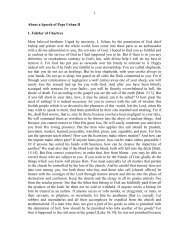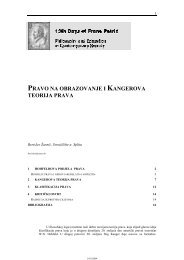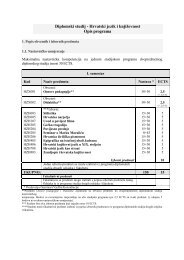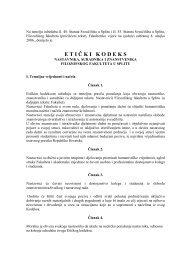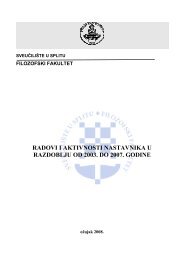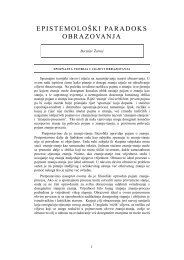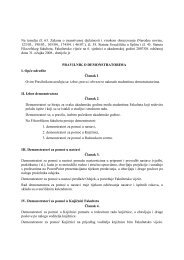Understanding Human Communication
Understanding Human Communication
Understanding Human Communication
Create successful ePaper yourself
Turn your PDF publications into a flip-book with our unique Google optimized e-Paper software.
310 PART THREE COMMUNICATION IN GROUPS<br />
EXPERT POWER Expert power exists when we are influenced by people because<br />
of what we believe they know or can do. For example, when a medical<br />
emergency occurs, most group members would gladly let a doctor, nurse, or<br />
paramedic make decisions because of that person’s obvious knowledge.In groups<br />
it isn’t sufficient to be an expert: The other members have to view you as one.<br />
This means that it is important to make your qualifications known if you want<br />
others to give your opinions extra weight.<br />
INFORMATION POWER As its name implies, information power comes from<br />
a member’s knowledge that he or she can help the group reach its goal. Not all<br />
useful information comes from experts with special credentials. For instance, a<br />
fundraising group seeking donations from local businesses might profit from<br />
the knowledge that one member has about which merchants are hospitable to the<br />
group’s cause. Likewise, a class group working on a term project might benefit<br />
from the knowledge of one student who had taken other classes from the instructor<br />
who will be grading their work.<br />
REFERENT POWER Referent power comes from the respect, liking, and trust<br />
others have for a member. If you have high referent power, you may be able to<br />
persuade others to follow your lead because they believe in you or because<br />
they are willing to do you a favor. Members acquire referent power by behaving<br />
in ways others in the group admire and by being genuinely likable.The kinds of<br />
confirming communication behaviors described in Chapter 7 can go a long way<br />
toward boosting referent power. Listening to others’ ideas, honoring their contributions,<br />
and taking a win–win approach to meeting their needs lead to liking<br />
and respect.<br />
After our look at various ways members can influence one another, three important<br />
characteristics of power in groups become clearer. 26<br />
■ Power Is Group-Centered. Power isn’t something an individual possesses.Instead,<br />
it is conferred by the group.You may be an expert on the subject being<br />
considered, but if the other members don’t think you are qualified to talk,<br />
you won’t have expert power.You might try to reward other people by praising<br />
their contributions; but if they don’t value your compliments, then all the<br />
praise in the world won’t influence them.<br />
■ Power Is Distributed among Group Members. Power rarely belongs to just<br />
one person. Even when a group has an official leader, other members usually<br />
have the power to affect what happens.This influence can be positive,coming<br />
from information, expertise, or social reinforcement. It can also be negative,<br />
coming from punishing behaviors such as criticizing or withholding the contributions<br />
that the group needs to succeed.You can appreciate how power is<br />
distributed among members by considering the effect just one member can<br />
have by not showing up for meetings or failing to carry out his or her part of<br />
the job.<br />
■ Power Isn’t an Either-Or Concept. It’s incorrect to assume that power is an<br />
either-or concept that members either possess or lack. Rather, it is a matter of<br />
degree.Instead of talking about someone as “powerful”or “powerless,”it’s more<br />
accurate to talk about how much influence he or she exerts.<br />
By now you can see that power is available to every member of a group.<br />
Table 9–3 outlines ways of acquiring the various types of power we have just<br />
examined.



